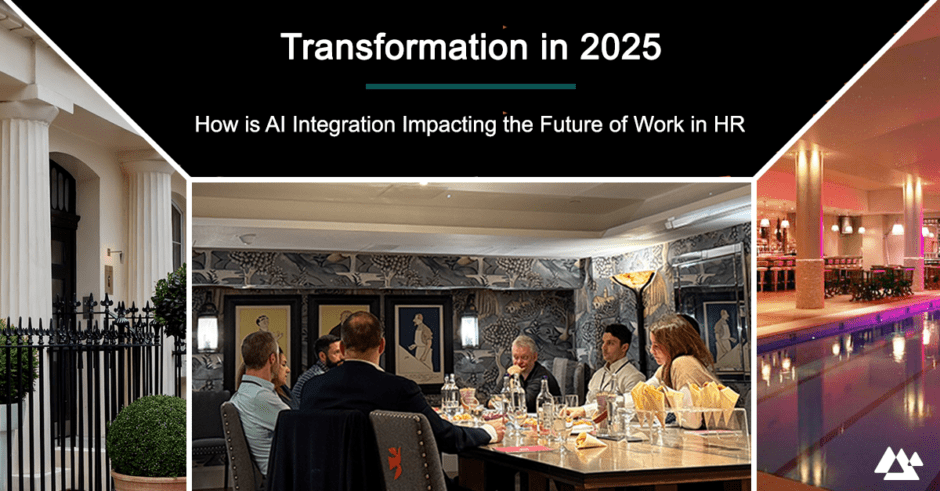“Your job will not be threatened by AI, but it will be threatened by a person using AI.”
We were delighted to bring together some of the brightest minds across Technology, Payroll, Operations, and Transformation within the HR function to tackle a pressing topic, all around the role of transformation in 2025.
Hosted across two breakout rooms, allowing attendees to have deeper and more focused conversations, no perspective was left unheard.
Together, we uncovered some of the biggest challenges, smartest solutions, and boldest predictions on where AI is taking HR.
The conversation brought about the following takeaways:
CEO Expectations Are Driving a Dual Focus: Operational Agility Now, Capability Building for Tomorrow
What has been the core objective of your CEO throughout 2024 and beyond? Senior HR leaders are being challenged to deliver short-term efficiencies while laying the groundwork for long-term transformation. CEO’s are prioritising operational excellence, agility, and cultural adaptability, particularly as organisations consolidate and face knowledge attrition. Are we ensuring knowledge portals are being built?
HR must support employees in navigating this disruption while ensuring continuity of expertise and capability through AI-driven knowledge sharing and upskilling.
AI Integration Requires More Than Technology – It Demands Cultural and Cognitive Readiness
The conversation highlighted that tech implementation isn’t the hardest part — it’s the education, mindset shift, and trust-building that determine success. AI adoption must start with use cases that feel relevant to people’s daily experiences (e.g.queries).
People will always ask the question, ‘what is in it for me?’ We need to roll AI out in a way that is something that people want; if they don’t use and see AI in their day-to-day, then they’ll inevitably struggle with the change. One of the examples given around the table was embedding AI into the self-service culture of employees wanting to access and see their payslips, a very simple but positive reinforcement process.
Leaders must recognise the emotional undertones of change, such as fear of obsolescence, and frame AI as a tool for empowerment rather than replacement. A blend of early adopters and cautious participants is vital to foster inclusive adoption. Can we use the generations who have had to embrace change over the years to pitch the AI change as a way of gaining trust and confidence?
Embedding AI as a Human-System Partnership
AI is most impactful when it augments human decisions rather than replaces them. HR will play a key role in shaping a Target Operating Model that leverages AI for real-time insights, live feedback loops, and dynamic knowledge curation — all whilst maintaining a strong human element.
The success of AI will depend on how well organisations integrate digital roadmaps with change readiness and whether they can build trust in AI’s role as a collaborative partner in meetings, problem-solving, and everyday workflows.
We will always need a blend of employees who are excited by the technology and those who are excited, yet with a level of anxiety about a change. The world outside is changing, not only our business. This isn’t just ‘us’, it’s the whole world that is changing. We are in a learning era, in a human way, we have always had to learn. AI may get ahead of us in certain aspects but it will always need to be fed or be instructed about how to do its ‘act’.
The world will overtake you if you’re not on the forefront when it comes to technology and specifically AI, other people will make it work.
The role you took and perceived it to be is in the past and is no longer there. Embrace the change and become a relevant person. Jobs are just going to be different jobs going forward, we aren’t eradicating anything.



